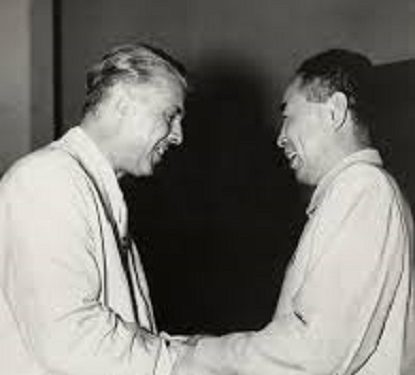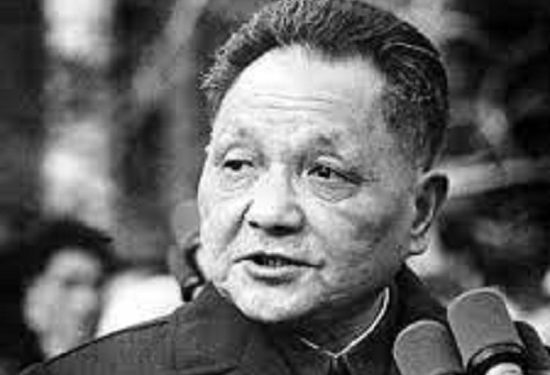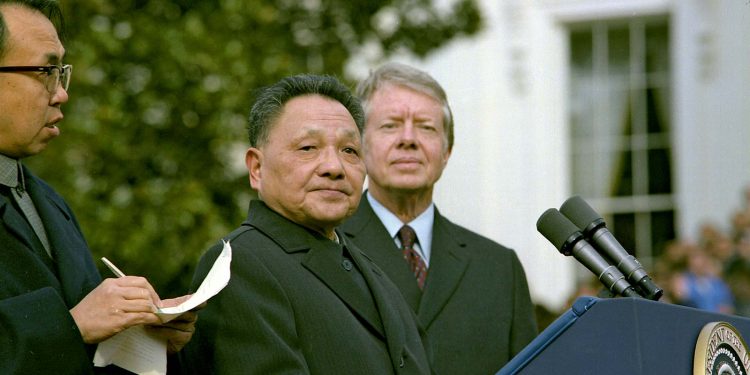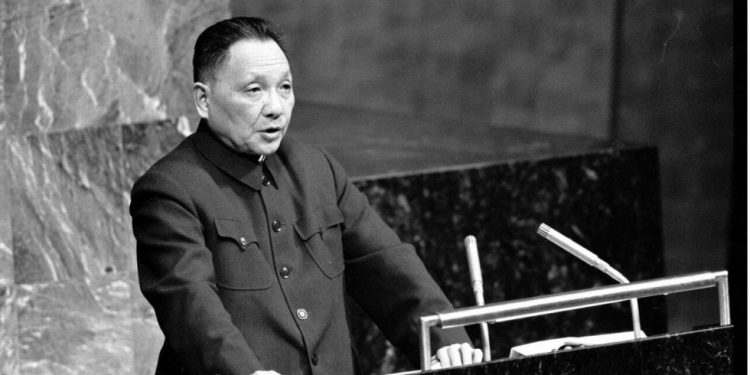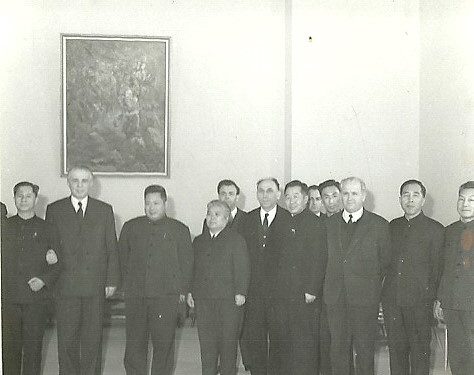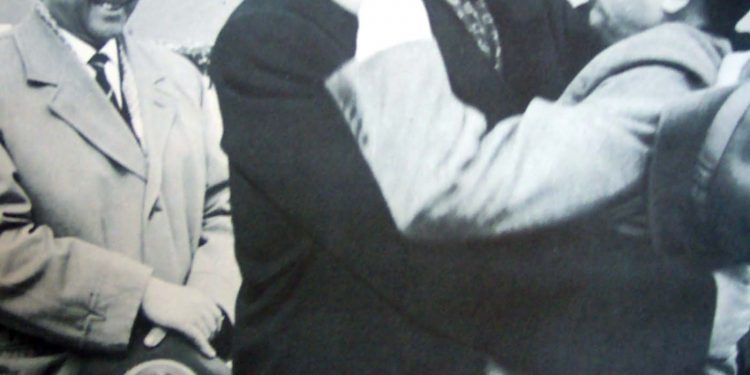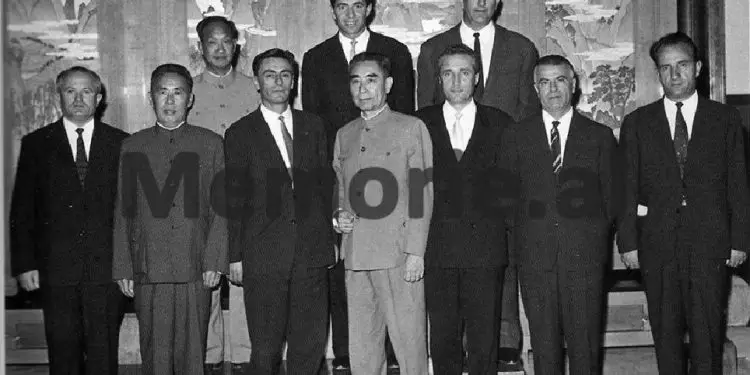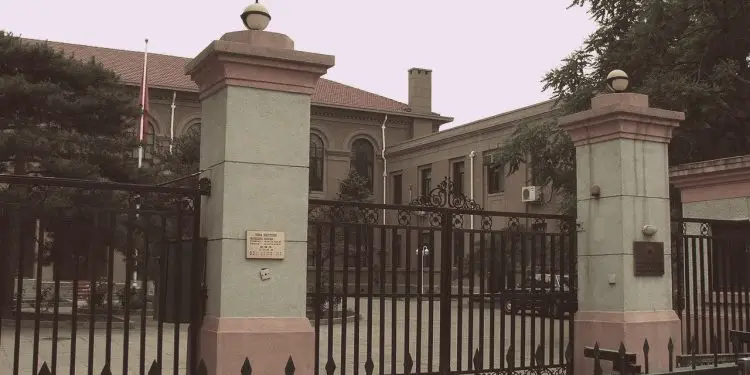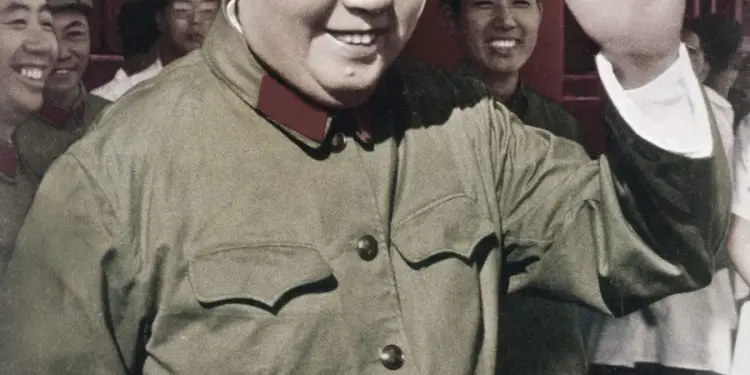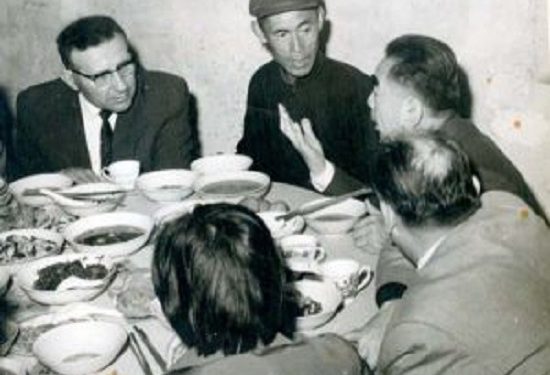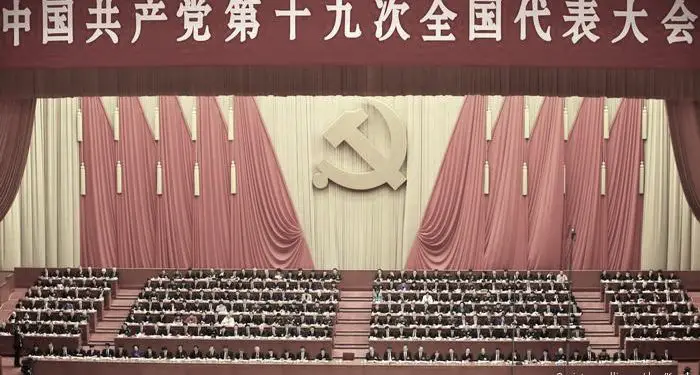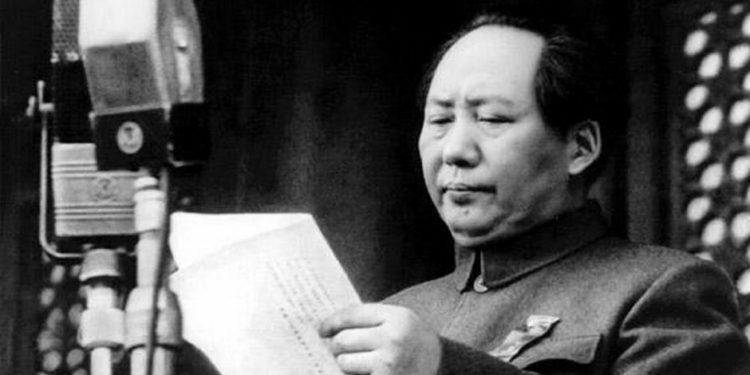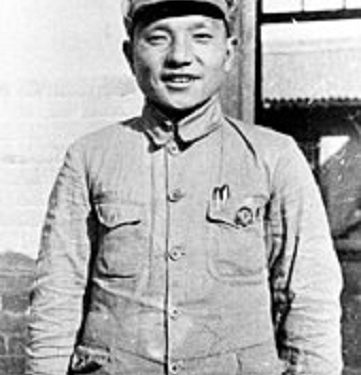Dashnor Kaloçi
The third part
Memorie.al publishes an unknown document extracted from the Central State Archive in Tirana (fund of the former Central Committee of the ALP), which belongs to 1962, which contains the minutes of the meeting and talks held between a the delegation of the Albanian Labor Party led by the members of the Politburo and the secretaries of the Central Committee of the ALP, Hysni Kapo and Ramiz Alia, with a delegation of the Communist Party of the People’s Republic of China led by Ten Hsiao Pin and Van Tse Zian. The full minutes of the talks between the two delegations held on June 10, 1962 at the headquarters of the Central Committee of the Communist Party of China, (which was the fifth official meeting between them), where after the first item of the agenda which was also a priority, a possible meeting with Mao Zedong and finding opportunities and the itinerary of the Albanian delegation to return home by air and sea, was also discussed about the bilateral relations and economic assistance that official Tirana requested through the two leaders of Hysni Kapo and Ramiz Alia, such as the Nitrogen (Phosphate Fertilizer) Plant to be built in Fier, the Warsaw Pact talks, the KNER, NATO, Nikita Hrushov, China’s relations with its neighbors and other Asian countries, such as: Soviet Union, North Korea, South Korea, Japan, Mongolia, Taiwan, North Vietnam, South Vietnam, Cambodia, Laos, Indonesia, Nepal, Burma, India, Pakistan, B urundi, etc., to those of the Middle East and Africa, such as: Iran, Iraq, Syria, Egypt, Algeria, Guinea, Mali, Ghana, etc.
Minutes of the meeting of the delegation of the Albanian Labor Party led by Hysni Kapo and Ramiz Alia, with the delegation of the Communist Party of China, led by Ten Hsia Pin and Van Tse Zian, held in Beijing on June 10, 1962
The fifth official meeting between the delegation of the Albanian Labor Party and the delegation of the Chinese Communist Party. (Held at the headquarters of the Central Committee of the Chinese Communist Party, at 9 a.m. on June 10, 1962)
Continued from the previous issue
Comrade Ten Hsiao Pin: Over the past two years it is clear that US imperialists are helping two forces in Asia: Japan and India. These two forces have not yet been fully formed. Efforts by the American imperialists to increase India’s power are due to the fact that India is highly populated while Japan is populated and technologically advanced. Of course, fewer countries in South Asia and Indochina are also included in this plan. Their specific measures are intended to help India become a great power, but its body is very weak.
In other words, they are trying to shift India from a neutral policy, to the side of the American imperialists. If such a thing were to happen, it would be a blow not only to China but also to the Soviet Union. When they help India, they offend Pakistan. Public opinion in Pakistan is now on the side of a change in government policy, and now Pakistan has a good position towards us. This has not yet been fully achieved. It would take a long time to achieve it.
Farther east, US imperialists are building a defensive line from Thailand to Cambodia to South Vietnam. Thailand has always been a place where American imperialists have sought to establish their presence. Using the situation in Laos to their advantage, they have now sent several thousand US troops to Thailand. But the American business in South Vietnam is not going well, because even the President of South Vietnam, Ngo Din Diem, in his own way, is now working against the US. Partisan warfare, especially in South Vietnam, is now highly developed. For a long time now the American imperialists have lost control of Cambodia.
Comrade Hysni Kapo: Does this mean that due to the difficult situation in this region of Asia and the developing problems in Laos, the situation in Vietnam and Thailand, etc., there is no possibility for the imperialists to escalate the situation?
Comrade Ten Hsiao Pin: It is possible that it will escalate, but it will not be a large-scale conflict.
Comrade Hysni Kapo: In other words, no large-scale conflict can be expected in this area at the moment.
Comrade Ten Hsiao Pin: At the moment we do not see it that way. But we have said many times that a partial war in the East cannot be ruled out, though this cannot be easily achieved. This has been told to us by the events in the Taiwan Strait (in 1958) and the Laos issue. The American imperialists today have no interest in escalating the war in Laos because they think it is not in their favor.
The Korean War is still a new lesson for them. The US imperialists are trying to create an aggressive bloc in East and Southeast Asia, with Japan as the nucleus, including South Korea and Jiang Jieshi (Chiang Kai-shek), but so far they have not been able to achieve this.
The Japanese are suffering economic hardship. There has been a lot of talk lately about trade with China; in fact the Japanese Prime Minister, Ikeda (Hayato) himself has spoken about it. The ruling classes in Japan are not showing any interest in creating such a bloc, which includes South Korea and Jiang Jieshi, because such a thing would be a heavy burden for Japan.
In order to start a war in the East against us, it can come mainly from three points:
From the West, India. But no war can start from India. How can a war take place in an area where there are no people? Can war be called a war between several hundred people? It is very difficult to use a division on the border with India. That is why a war on this side is very difficult to wage.
Our existing military units in the border areas with India are fully sufficient at the moment. If they attack, the Indians may take some areas from our land, but they would be mostly snowy mountains, places that are completely habitable.
Another point of war against us may be opened by Indochina, but the terrain there is also not suitable for war. That is why the American imperialists are not increasing their presence in Laos, because it is not a suitable area for them from which to wage war. If the war starts further south, it will be easy for us to penetrate Laos. However, such an opportunity cannot be fully discounted, it can happen.
To the east, another point of war may be in Korea. The American imperialists have been there, they know the terrain, but they also know that North Korean forces and our main forces are stationed in that area, so it will not be easy for them.
In addition to these areas, another point to start a war against us would be in the straits of Taiwan. In this area the war must come from the sea, but even this place is not easy for our enemies. Can American imperialism use Jiang Jieshi for such a war? We have recently noticed that Jiang Jieshi is making efforts to achieve this, in other words he is trying to launch a counterattack against the continent.
He has done some serious preparatory work towards this goal, but he only has about half a million people for this work. His infantry numbers about 400,000 troops and he has 300 aircraft available to use against us.
But why does Jiang Jieshi think he should take such an action? He thinks we are in a difficult situation. But in his army, from company deputy commanders to the ordinary soldier, he no longer has people from mainland China as he once did.
If he does not undertake his attack against the continent at this time, he will never have any other hope for such an attack in the future. That is why Jiang Jieshi has been making preparations for a counterattack since the beginning of the year.
He has made preparations for an attack on the continent, but in the US there are two schools of thought on the matter. One is that of the State Department which says there is hope from such an action. Next is that of the Pentagon, where some people agreed with the idea of an attack by Jiang Jieshi. At least so far, we do not see any resolution from the US on such a thing.
If an attack is launched against China, US imperialism could help Jiang Jieshi with several ships with the aim of solving the problem of supplying his army. But we have also made our preparations in this regard.
We are thinking it would be a good thing to make some concessions to Jiang Jieshi’s army, so that he can deploy about 200,000 troops on the mainland, the best part of his army; let it invade a piece of land and then eliminate it completely. We are thinking of such an action.
But we are facing another problem: should we preserve or liquidate Jiang Jieshi. If we liquidate 200,000 Jiang Jieshi soldiers, his regime would fall and American imperialism would achieve its so-called “Two China” goal. The weakening or liquidation of Jiang Jieshi will mean the occupation of Taiwan by American imperialists.
The American imperialists support some forces seeking the liquidation of Jiang Jieshi, for the reasons I mentioned. In this light, Jiang Jieshi is our friend against the “Two Chinas”. (This is why our goal is to save Jiang Jieshi).
We fight for his goals to never be achieved, and at the same time make sure he is not seriously harmed. Thus you can see that a counterattack against the continent is not an easy thing.
Comrade Hysni Kapo: Can you tell us a little about the current situation in Laos? We have a general idea, but would like to have a better picture of the situation in this country.
Comrade Ten Hsiao Pin: We agree with the formation of the coalition government in Laos. To this end, we have exchanged some views with our Vietnamese comrades, with those of Laos and with the Soviets. Our reason is that we think that with the formation of a coalition government in Laos, US forces will be barred from entering the country.
The most important thing is to gain time for Pathet Lao, to strengthen its work with the masses (commands about 40% of the land of Laos, not including the area of the Prince, Souvanna Phouma). There are still many difficulties with forming a coalition government and that is why reaching an agreement on Laos does not mean creating a coalition government.
Now a question arises: Will the coalition government be approved by the treacherous parliament? In the coming days there will be a war at this point there, and in the future there will be war every day.
Running the talks means that in fact there will come out a “three-horse cart”. The UN also uses such a term, “a three-horse cart”, which means that each participant has the right to reject (veto) the proposals of the other participants.
Coalition government is an empty thing. Now each of the parties there is doing its own thing, and that is why there are and will be difficulties in finding a solution to the issues there.
That is why the formation of the coalition government in Laos is the beginning of a new war, which will be even more complicated than the armed struggle, because all three sides will want to take advantage of this chance to increase their power. ; to strengthen their position as much as possible.
[….] There are only two solutions to normalize the situation in Laos. If the end of the situation is the election, which is one of the possible solutions to the internal situation in Laos, the Prince, Souphanouvong, will win, and not Souvanna Phouma, or Phoumi Nosavan.
But will they agree on such a conclusion? The largest prestige in Laos, is commanded by Souphanouvong, so a troika will only operate there for a short time.
Now we need to strengthen our position there and then we can move forward further; in other words, we must make the necessary preparations to further strengthen our position there and at the same time to boycott the entry of U.S. armed forces into Laos.
Comrade Hysni Kapo: Now we have a clear situation in Laos. Can you tell us anything about non-leading countries? You told us something about the efforts made by American imperialism to remove India from neutrality, but there are other non-ruling countries, which work under the guise of neutrality. I am talking about those countries that have a cause unified with American imperialism.
Comrade Tan Hsiao Pin: I would like to say a few more words about the situation in Laos, before I talk about the issue you just asked. Will the formation of a coalition government be achieved? This will become clearer in the coming days. Without the formation of this government, victory in Laos will not be worth much. On this issue, our point of view is very different from that of Nikita Khrushchev.
Khrushchev viewed the agreement to form a coalition government in Laos as an example of how to reach an agreement with Western powers through talks. We are very far from this point of view of Nikita Khrushchev. In any case, it is in our interest to distance the USSR from trying to resolve the Laos issue.
As for the issue of non-ruling countries, in some of the areas of the East, they have a good position; their relationship with us is not bad. For example, Cambodia has good relations with our country. There are times when they speak ill of us, but in general they treat us well, especially Sihanouk, who treats us well.
He thinks that on the issue of preserving Cambodia’s independence, he can count on us and that we are his friends. Cambodia fears Ho Chi Minh, the Democratic Republic of Vietnam, because during the revolution, Cambodian territory was under the control of Ho Chi Minh. But Cambodia is more afraid of the US and that is why they mostly reprimand Americans.
The US wants to create a defensive line that would include Cambodia, Ngo Dinh Diem and Thailand. The latter two are trying to include Cambodians in their group.
On a western course, an unrelated country is Burma, which has very good relations with us. The agreement on the border dispute was signed by the Chairman of the Revolutionary Council and the Prime Minister of Burma, Ne Win, and not by the Prime Minister of Burma, U Nu, who signed the agreement only at the end. Burma is now run by a military government.
The military coup that took place in Burma toppled U Nu, a friend of Indian Prime Minister Jawaharlal Nehru. It can be said that for a while the military government will maintain good relations with China, even better than what we had with U Nu. But in the future, this government will pose a risk to us. That is why, according to our analysis, this government is good, and also not good. In any case, at the moment our country’s relations with Burma are very good. /Memorie.al
The next issue follows




